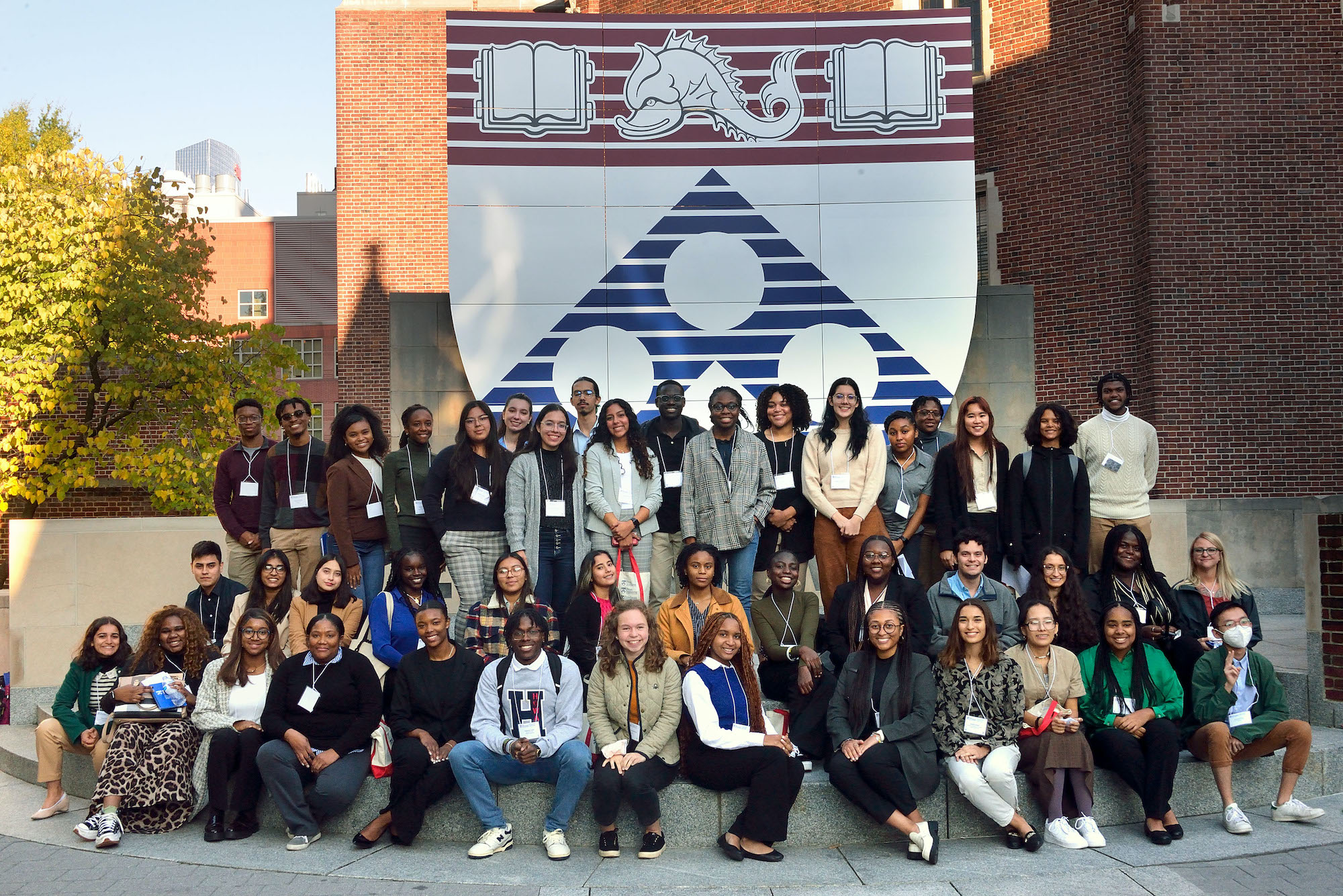
Nearly 50 students from around the country came to Penn in October for DEEPenn STEM, an initiative designed to prepare students from backgrounds underrepresented and marginalized in STEM fields to pursue graduate studies. (Image: Felice Macera)
Pursuing graduate education in science, technology, engineering, math, (STEM) and related fields can open an array of career possibilities, from working in academia, health care, industry, and more. But applying to graduate school, and thriving once there, can sometimes seem like insurmountable obstacles, especially without role models to help lead the way.
The DEEPenn STEM initiative, short for Diversity Equity Engagement at Penn in STEM, aims to plot out a roadmap around and over these potential barriers, ensuring that college students belonging to groups historically underrepresented or marginalized in STEM can achieve advanced training and success.
Earlier this month, DEEPenn STEM welcomed 48 college students from across the United States to Penn’s campus, engaging them in three days of workshops, lectures, networking opportunities, lab tours, Q & A sessions, and a resource fair—all aimed at smoothing the path toward a graduate education.
“This effort grew out of noticing that there are a lot of students, especially when you’re talking about historically marginalized and traditionally underrepresented groups, that don’t really understand what graduate school is, how to get there, and what achieving an advanced degree can hold for them,” says Ashley Wallace, assistant director of education and outreach for the Laboratory for Research on the Structure of Matter.
Wallace and others from the School of Arts & Sciences (SAS), the School of Engineering and Applied Science (SEAS), and the Perelman School of Medicine (PSOM), coordinated across schools and centers in organizing DEEPenn STEM, in part to highlight the similarities and differences between the application process and opportunities at the University’s different schools.
All the participants’ travel, lodging, and food expenses were covered with support from SAS, SEAS, and PSOM as well as the Office of the Provost, the Center for Engineering MechanoBiology (CEMB), the Center for Sustainable Separations of Metals, the Laboratory for Research on the Structure of Matter (LRSM) at Penn, the Vagelos Institute for Energy Science and Technology, and the Center for Soft and Living Matter.
“We believe it’s important to have diversity in our programs, because diversity really brings out the best,” says Boon Thau Loo, associate dean for graduate programs in SEAS, who spoke to participants about the school’s admissions process. “Different people bring different ideas.”
Continue reading at Penn Today.
